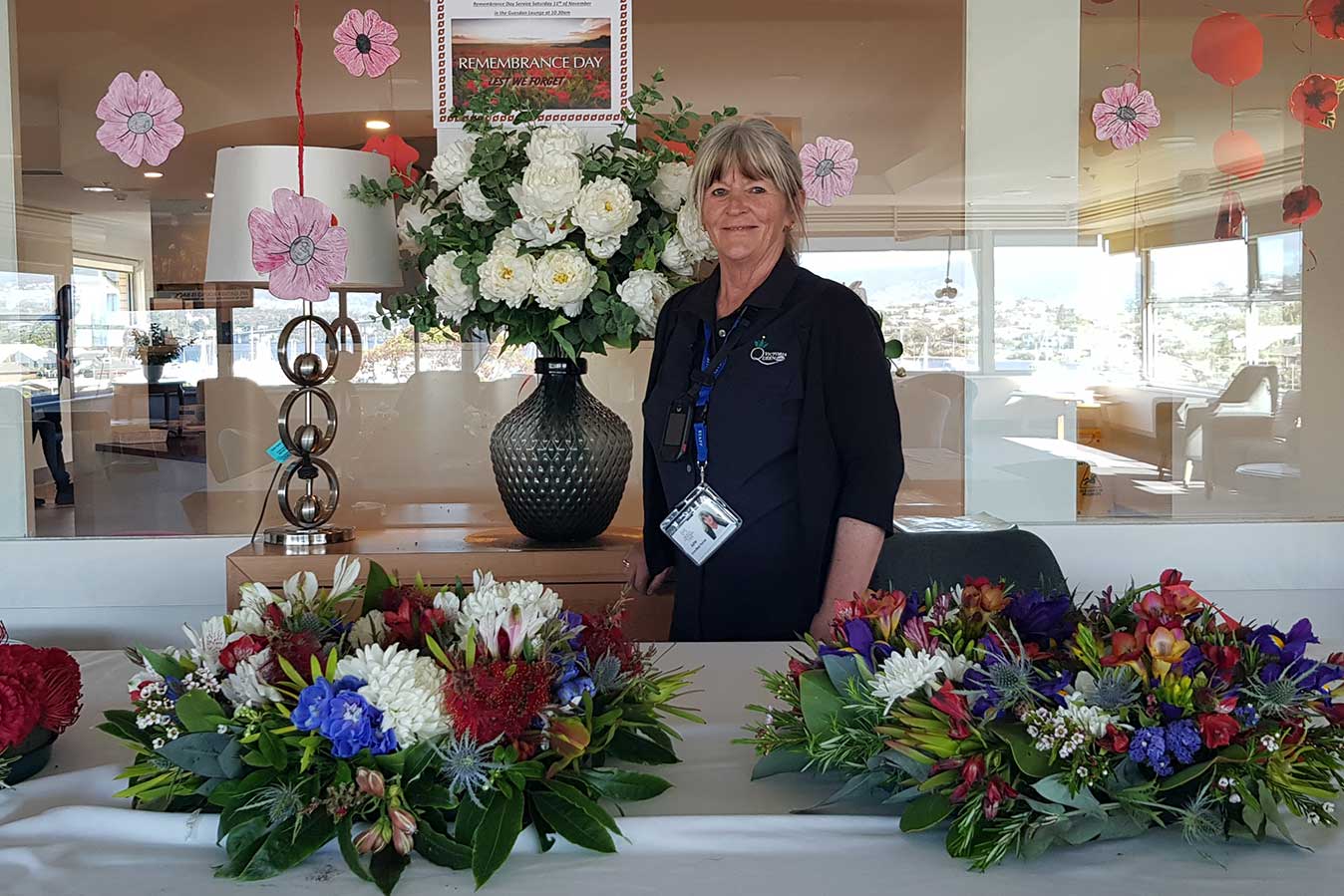Last year (2022), just two weeks out from Christmas, Tasmanian enrolled nurse Julie Wicks and dozens of her colleagues working across Southern Cross Care’s aged care facilities were asked to front up to a Monday morning meeting over Skype. Shock quickly spread after staff learned about plans to make all ENs redundant, meaning they wouldn’t have a job in a fortnight.
The decision left Julie, who had worked for Southern Cross Care for two decades, angry and frustrated.
The aged care provider’s proposed new ‘Household Model of Care’, allegedly prompted by recommendations made by the Aged Care Royal Commission and ENs no longer being funded by the federal government, would have resulted in ENs axed from its rosters and replaced with care workers. It took six months of ongoing uncertainty and stress, and continued action led by the ANMF (Tasmanian Branch), before the state’s largest aged care provider finally backed down from its plans to make ENs redundant.
But for Julie, who began working in aged care because of her passion for looking after vulnerable people, the damage had been done. Further, she says while SCC didn’t end up making any ENs redundant, they removed their ability to administer medications, effectively diluting their roles to extended care assistants. Most ENs were also forced to relocate to other larger sites.
The constant uncertainty, and mounting toll, finally prompted Julie, along with many others, to quit.
“I’d been at my site for 21 years, and to be told that I’m going to another site, where I don’t know any staff, and I don’t know any residents, was frustrating,” says Julie.
“I just thought, I might as well leave, because in staying I’m just going to be put in the same position as starting a new position somewhere else.”
Thankfully, Julie soon found another job at Queen Victoria Care where, most importantly, ENs remain a valued part of the staffing skill mix. At the 132-bed facility, she carries out a range of daily tasks, including medicating residents, dressing wounds, talking to families and doctors, and general care of residents.
Queen Victoria is working hard to adapt to new aged care reforms, such as mandatory care minutes, which came into effect in October, says Julie.
She’s had several meetings with management to discuss the changes and how the facility can look to restructure clinical care so that all RNs, ENs, and carers keep their positions.
At the moment, she says the skill mix at the facility is “really good”, with plenty of staff and “always somebody to back you up”. Refreshingly, management have also made her feel valued and respected.
“They’ve said that they absolutely want to keep enrolled nurses and that they value us and are going to find a way to run our facility so that we can still keep the ENs,” says Julie.
“Yes, our positions may change slightly. For example, we might be doing less medications and assisting the RNs to do care plans and other things – but they have said they absolutely will keep ENs.”
Julie believes enrolled nurses belong in aged care because, without them, the load on remaining staff would become unsustainable.
“If it was left to just the RNs and the medicated ECAs, the workload on the RN would be extreme,” she warns.
“They just would not be able to cope if they didn’t have enrolled nurses working under them picking up what they don’t have time to do. They [RNs] also look to us for information about the residents. Looking back at Southern Cross Care, I don’t know how they’re coping without their enrolled nurses, because now the medicated ECAs are doing medications.”
Encouragingly, several key aged care reforms were introduced across the sector this year. They include all providers needing to have at least one RN on-site 24/7 at each facility they operate, and mandatory care minutes. While aged care workers working under the Nurses Award and Aged Care Award received a 15% pay increase.
Under the pay increase, achieved following the ANMF’s landmark Work Value Case before the Fair Work Commission, Julie’s pay has gone up about $4 an hour.
“I still think that nurses, or anyone who works in aged care, deserves a better wage than what we’ve been given compared to the public sector. But I was happy with the increase,” explains Julie.
“For me, it makes my budget a little bit usable. I’m a single parent. I don’t have a partner. So, I only have one wage coming into the household. I pay huge rent. I don’t own a property. So just that little bit of extra money, with groceries going up, and petrol being extreme, goes a little bit further.”
After working in aged care for more than two decades. Julie says her passion for taking care of older people remains as strong as ever.
“They’re so vulnerable and we’re all going to get old one day,” she says.
“I’m about to turn 60 and I look at some of these old people and think ‘wow, this is going to be me, one day’. So I think that if we can make their life a little bit better, because the need is to, then we’re doing a good thing.”
While reform across the sector is well underway, she suggests many challenges still lie ahead. Aged care workers are still relatively underpaid for the type of work they do. And more needs to be done to attract early career nurses to consider aged care as a meaningful, and viable, career choice.








